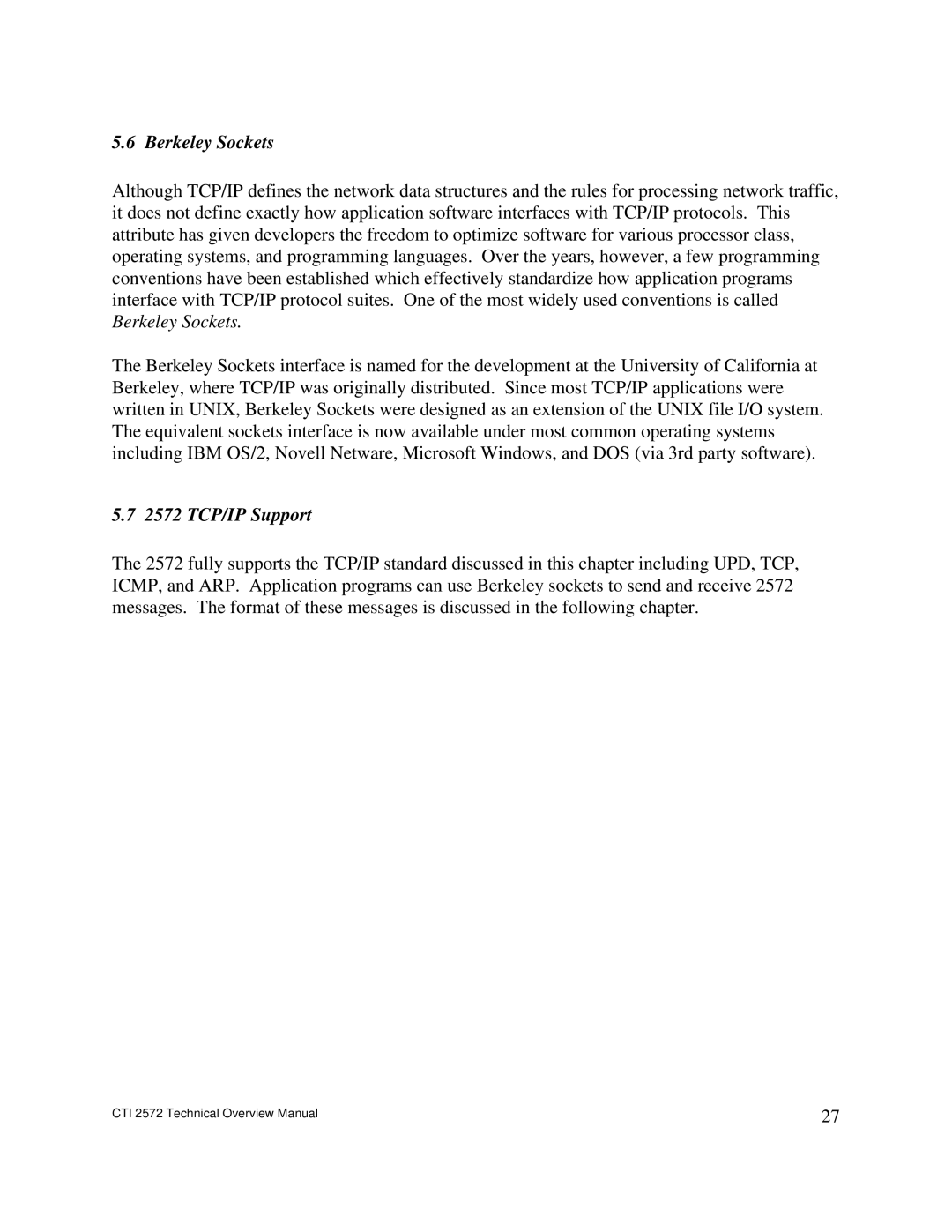5.6 Berkeley Sockets
Although TCP/IP defines the network data structures and the rules for processing network traffic, it does not define exactly how application software interfaces with TCP/IP protocols. This attribute has given developers the freedom to optimize software for various processor class, operating systems, and programming languages. Over the years, however, a few programming conventions have been established which effectively standardize how application programs interface with TCP/IP protocol suites. One of the most widely used conventions is called Berkeley Sockets.
The Berkeley Sockets interface is named for the development at the University of California at Berkeley, where TCP/IP was originally distributed. Since most TCP/IP applications were written in UNIX, Berkeley Sockets were designed as an extension of the UNIX file I/O system. The equivalent sockets interface is now available under most common operating systems including IBM OS/2, Novell Netware, Microsoft Windows, and DOS (via 3rd party software).
5.7 2572 TCP/IP Support
The 2572 fully supports the TCP/IP standard discussed in this chapter including UPD, TCP, ICMP, and ARP. Application programs can use Berkeley sockets to send and receive 2572 messages. The format of these messages is discussed in the following chapter.
CTI 2572 Technical Overview Manual | 27 |
